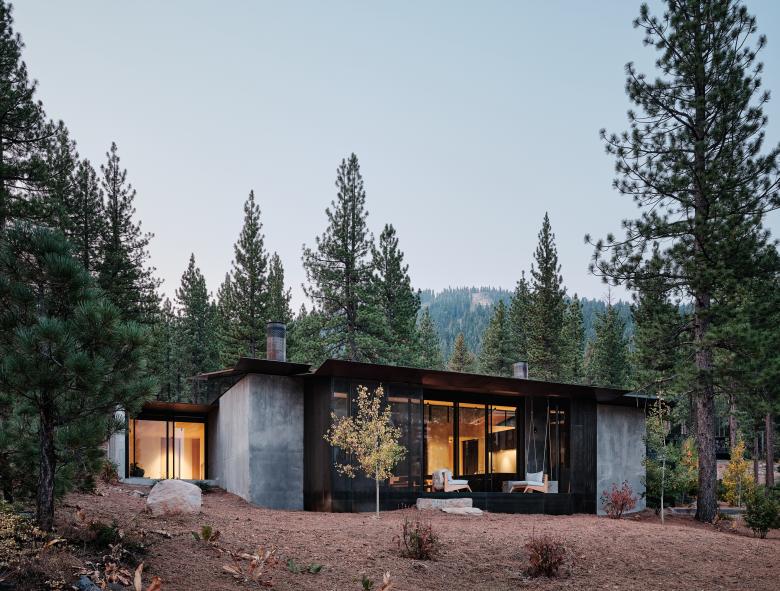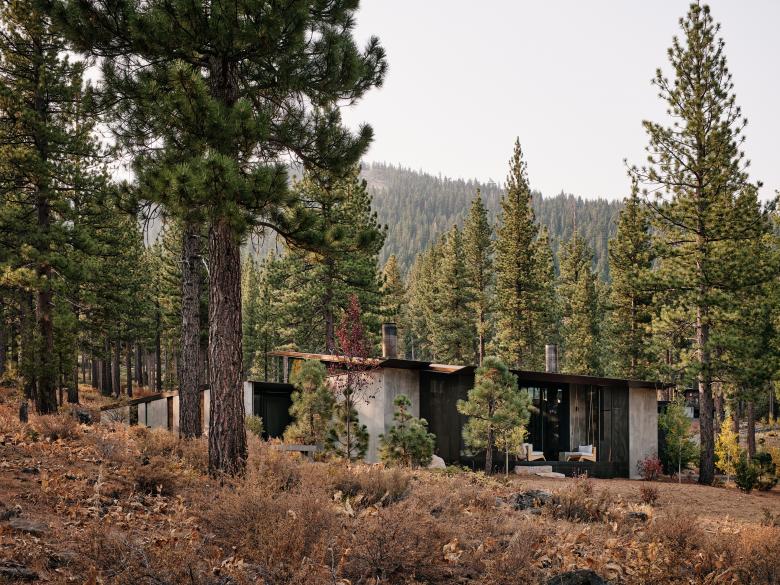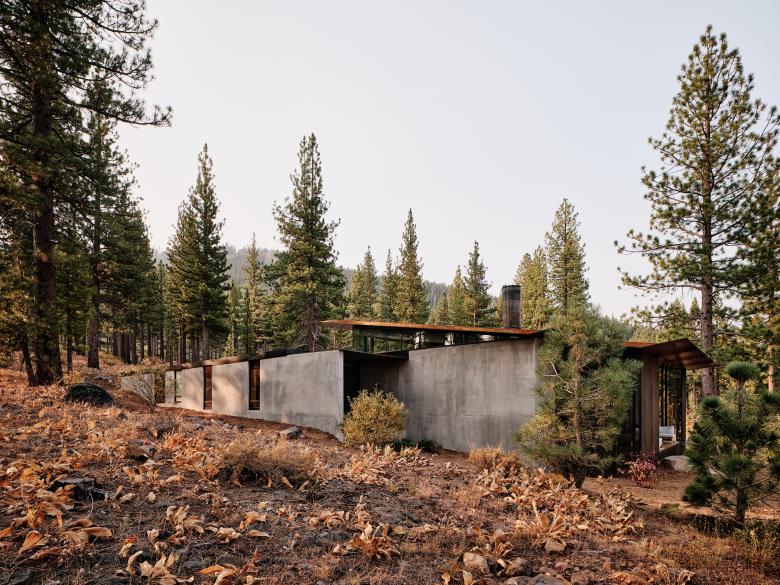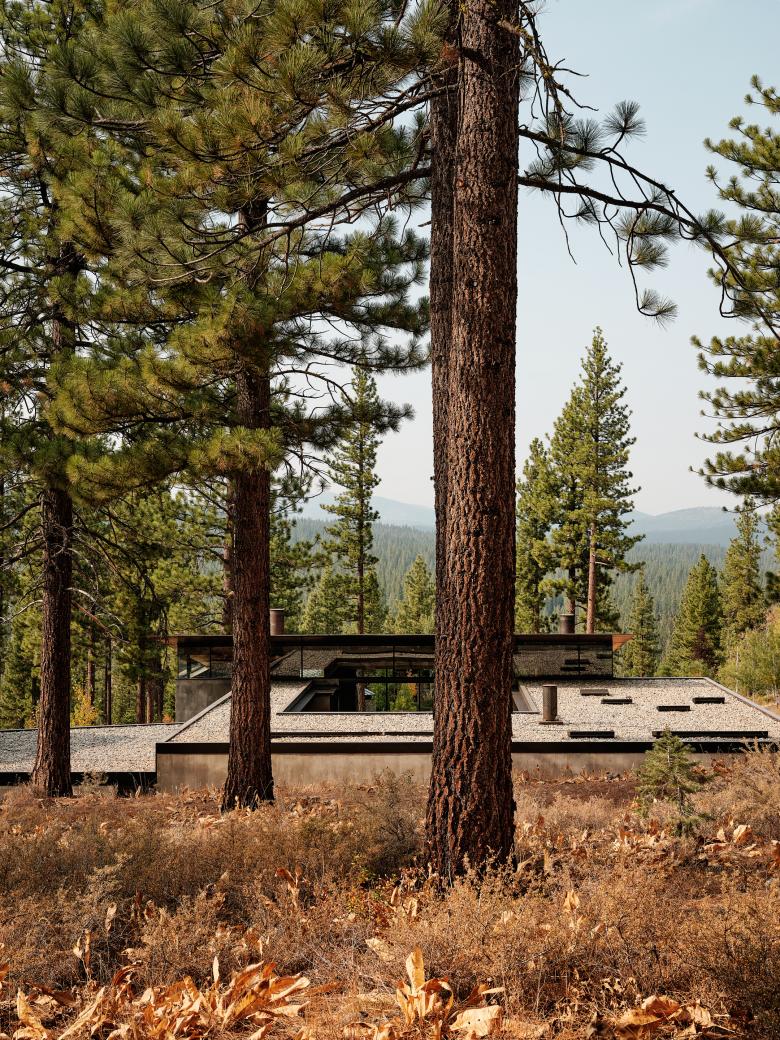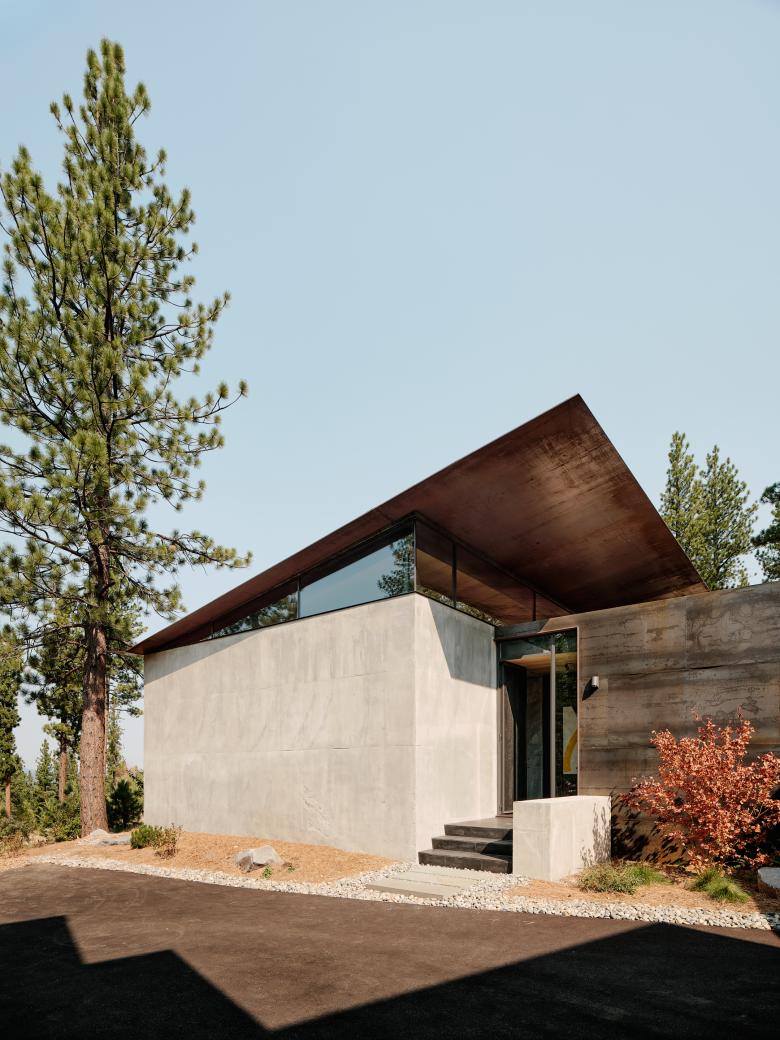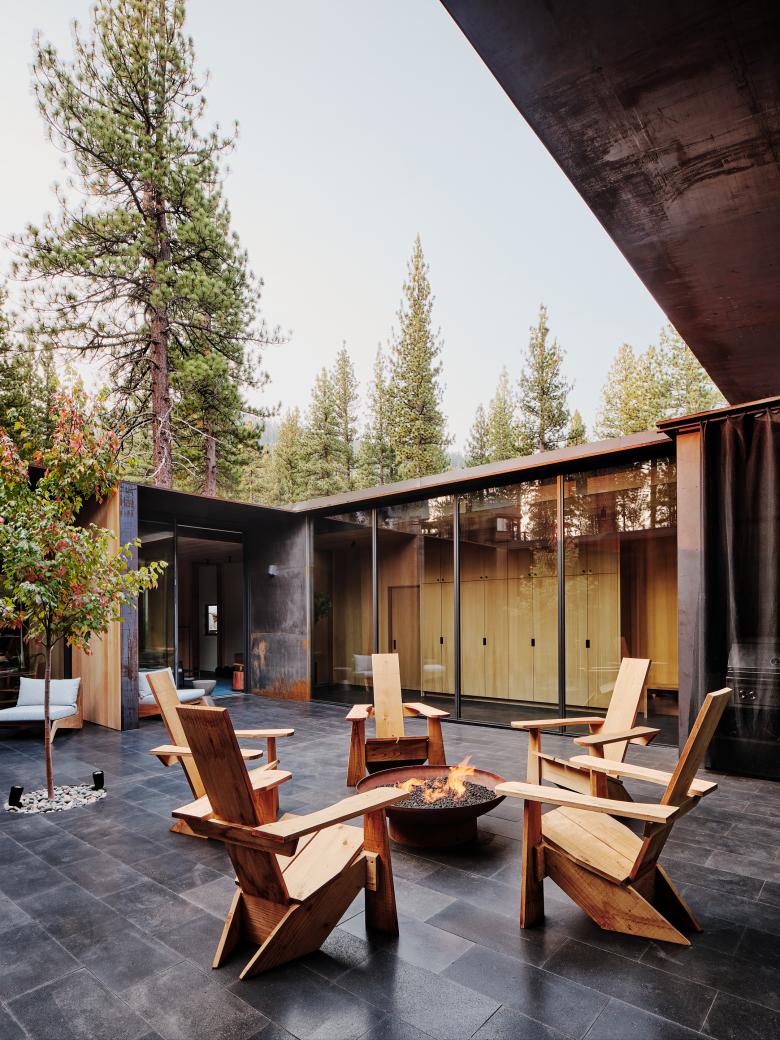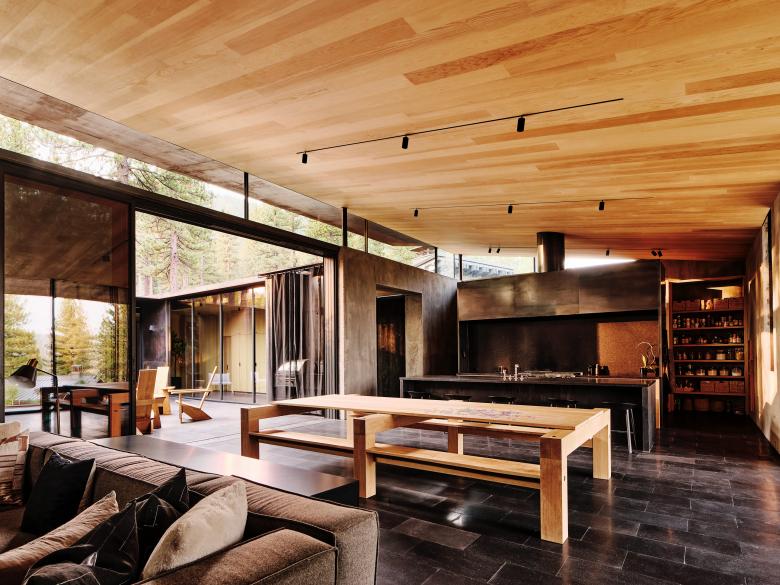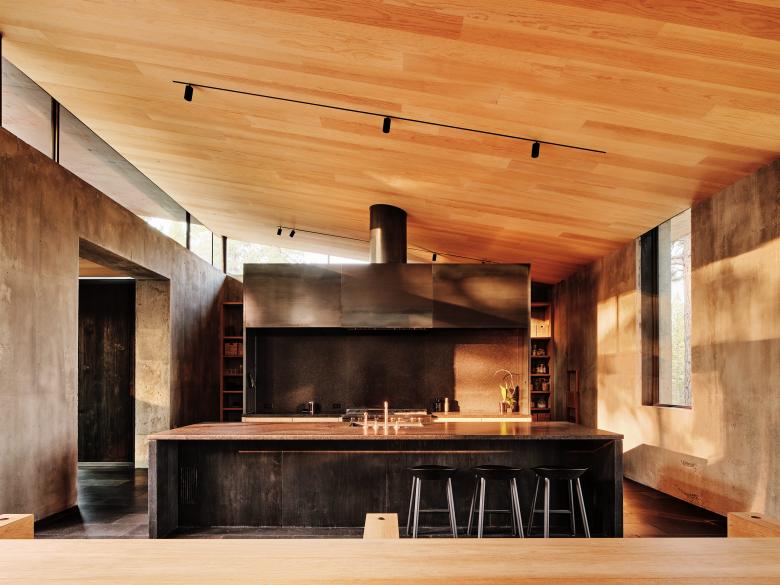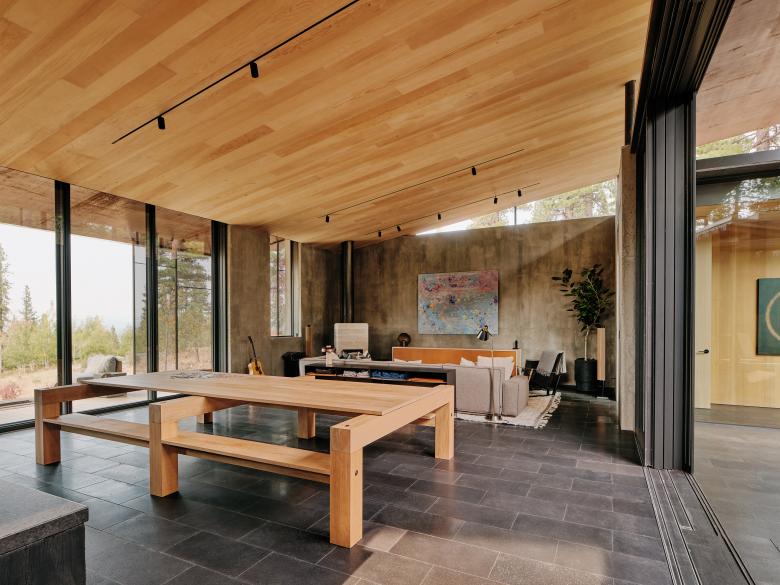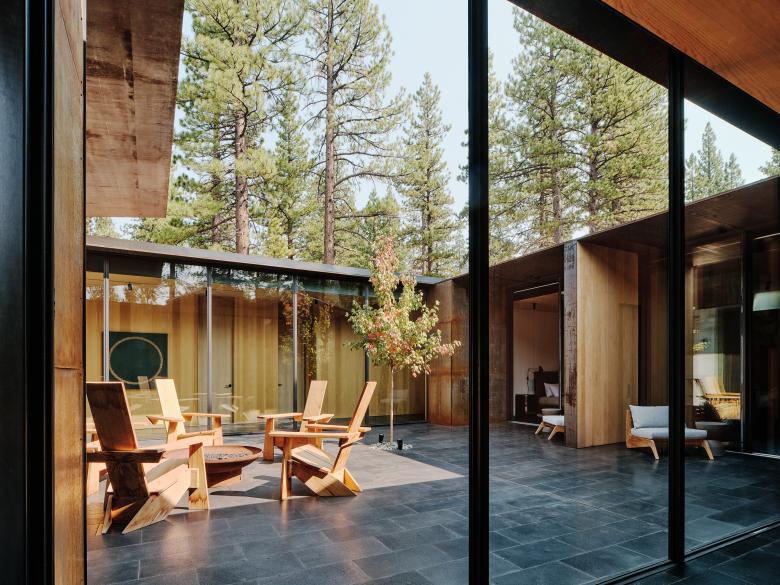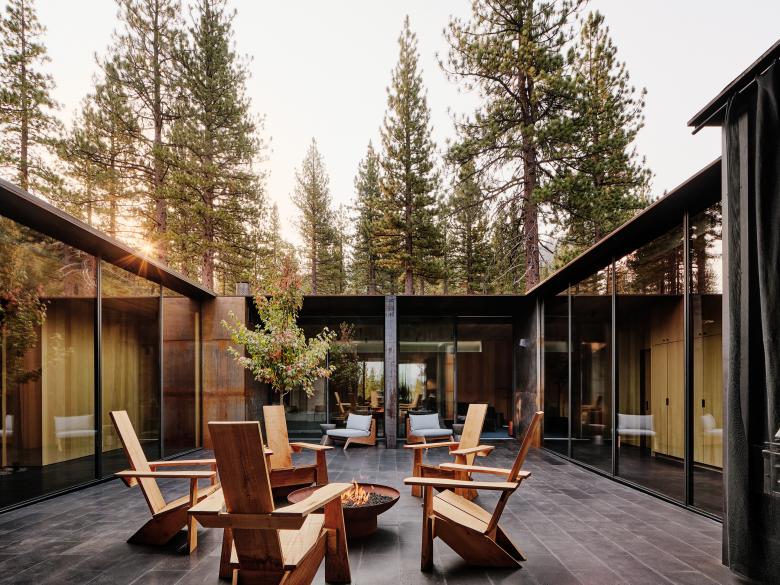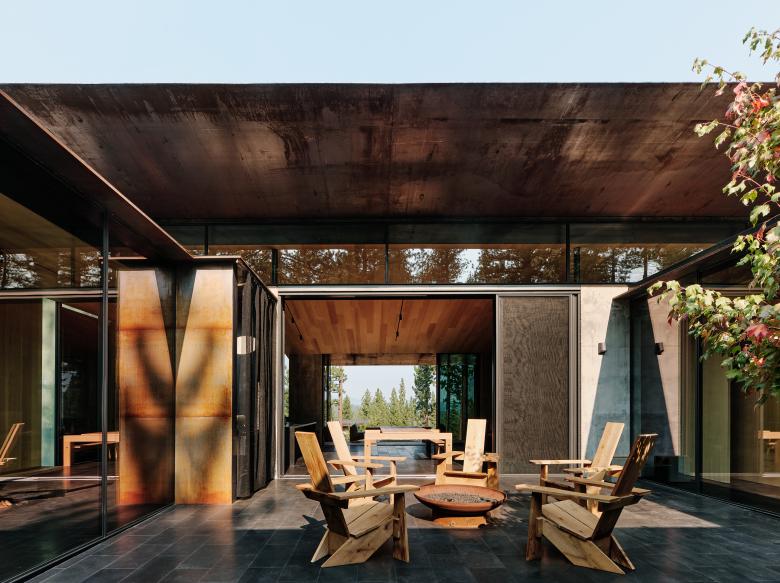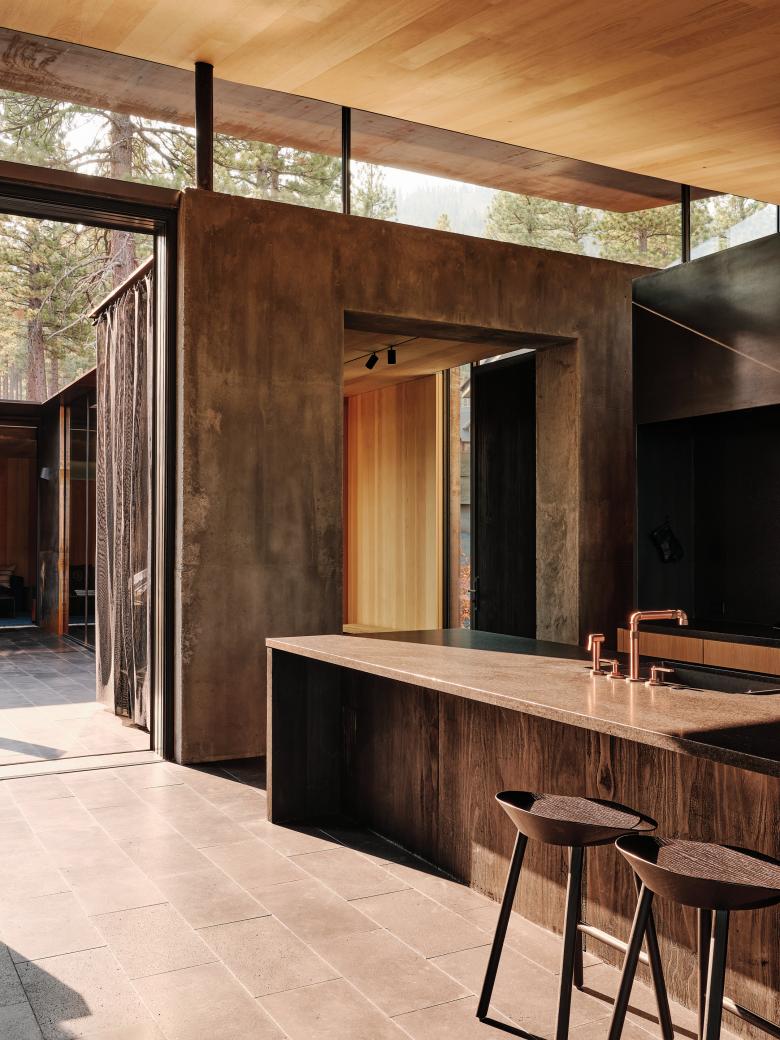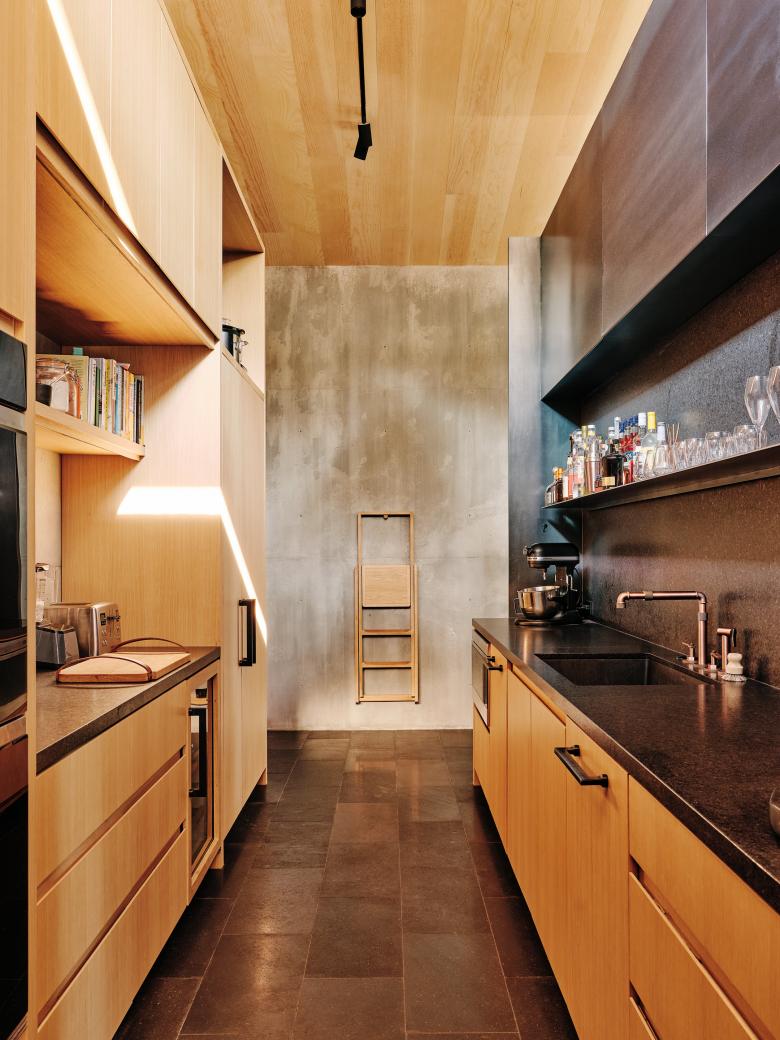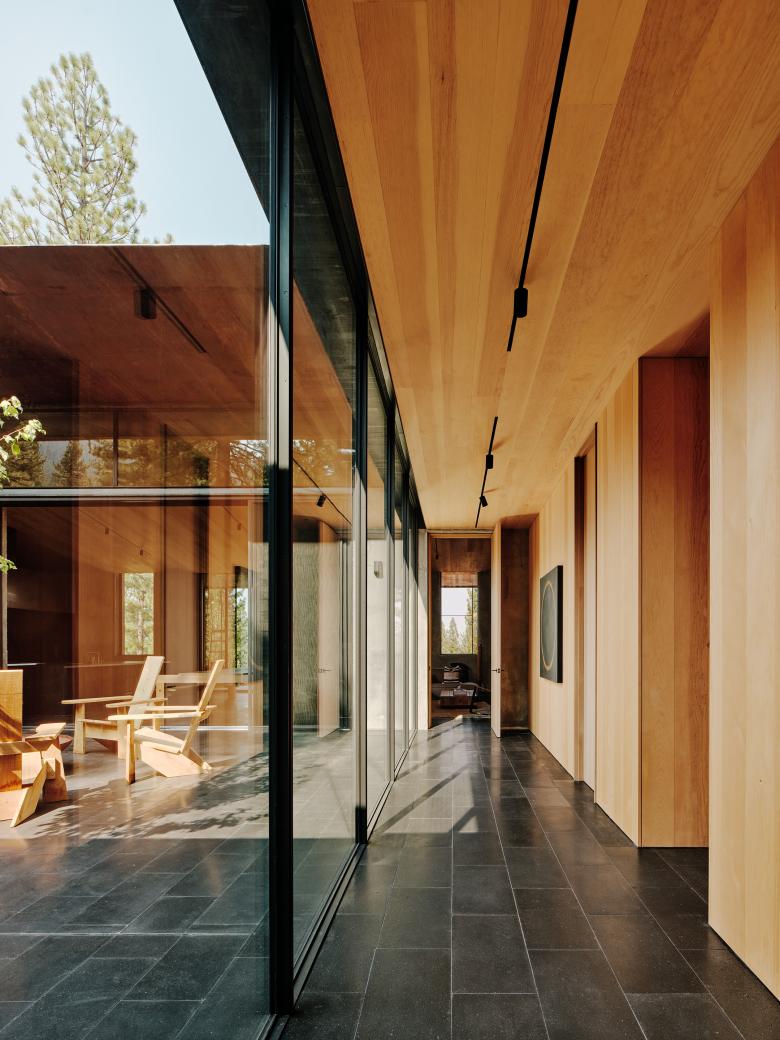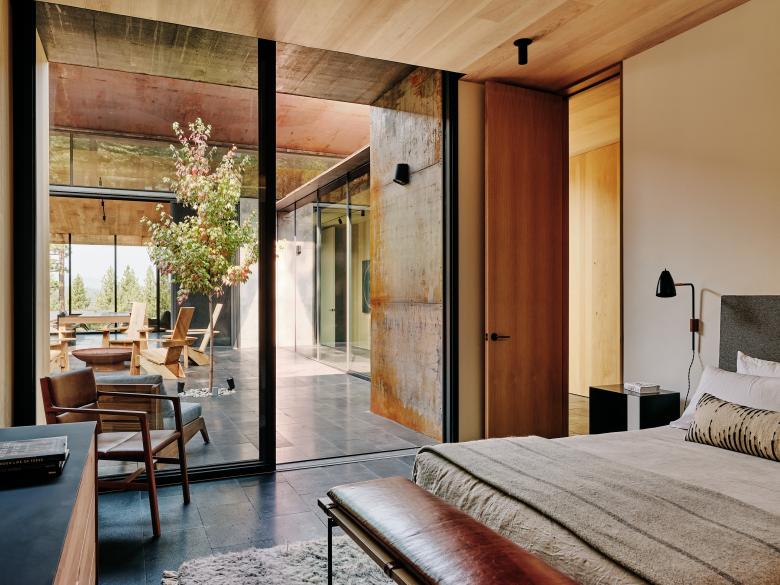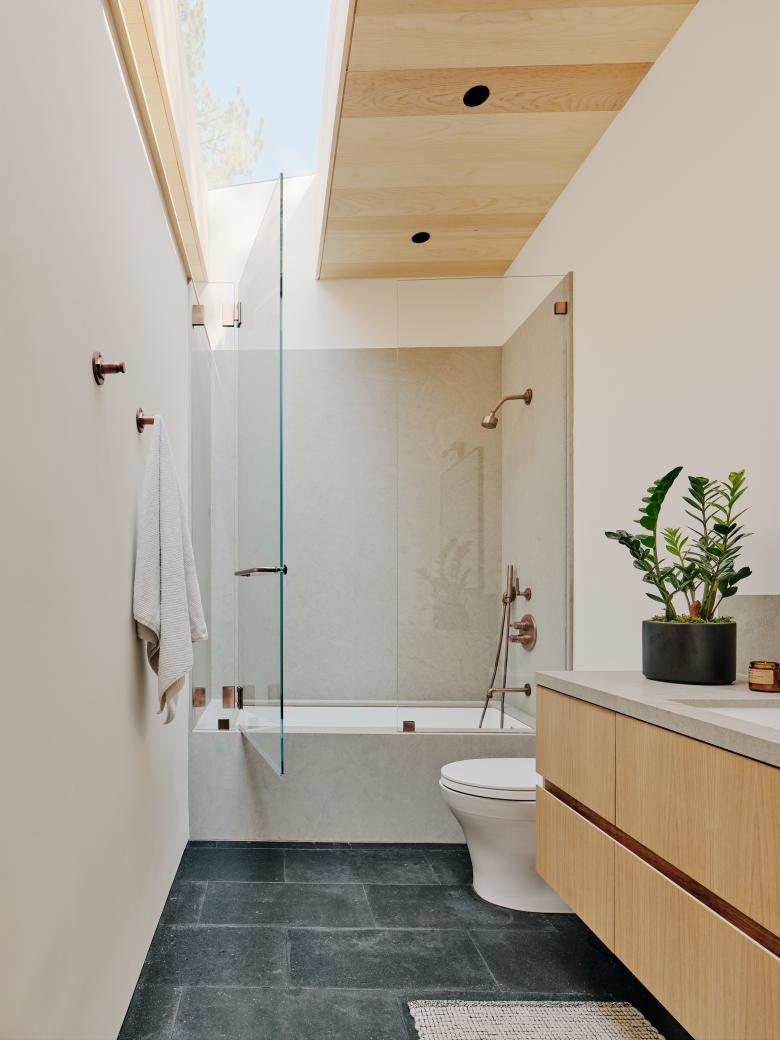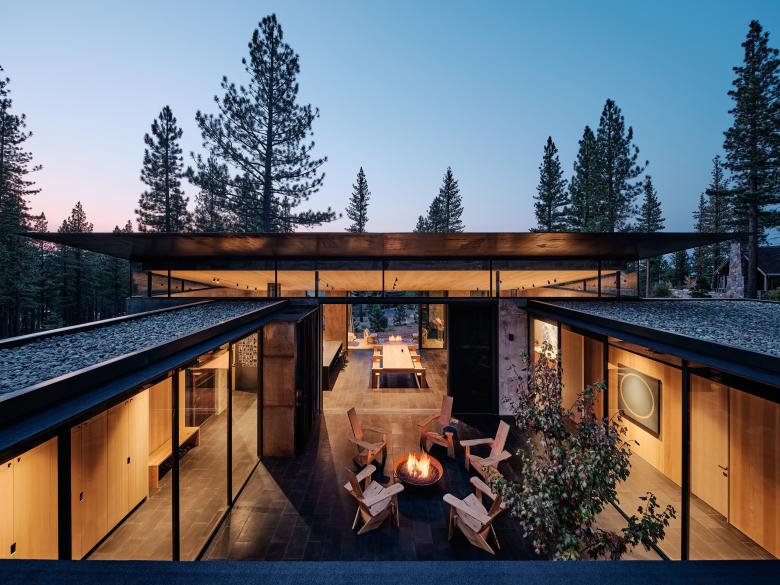CAMPout
Truckee, CA, États-Unis
- Architectes
- Faulkner Architects a.p.c.
- Lieu
- Truckee, CA, États-Unis
- Année
- 2020
- Équipe
- Gregory Faulkner (Principal), Christian Carpenter (Project Architect), Jenna Shropshire (Project Manager), Ann Darby (Architect)
- Architecture
- Faulkner Architects
- Interior Designer
- NICOLEHOLLIS
- General Contractor
- Jim Morrison Construction
- Structural
- CFBR Structural Group
- Civil
- Shaw Engineering
- MEP
- Sugarpine Engineering
- Surveyor
- Webb Land Surveying, Inc.
- Geotechnical
- Nortech Geotechnical Consultants
- Title 24
- Monterey Energy Group
A San Francisco family asked us to help them expand an existing property near Lake Tahoe in the Sierra Nevada Mountains. The site sits on a north facing slope and looks down to the Martis Valley and up to Lookout Mountain through a natural screen of 100-year-old Jeffrey pine trees. In our world today, much of the built work is driven by visual appearance. Symbolic forms and arbitrary material deployment remind us of our history. Usually, these collages of comfort for the eye ignore their contexts that should affect the work in a tangible way. Wooden, furniture-like houses built in an ever-expanding migration to the wild lands that are at risk of fire appear to thumb their noses at the danger and the sun and the wind. At CAMPout, comprehensive rigor and consistent deployment of materials based on building-sized decision making instill a sense of calm and connection for the whole assemblage and ultimately the family. The material palette is derived from the surrounding context of basalt boulders and sugar pines that cover the forest floor with a mat of rust colored pine needles. Glazing is limited at the exterior interface with the combustible surroundings and maximized in the courtyard, where the light and screen of the pine forest safely connects with the interior.
Dug into the slope, sleeping areas wrap a courtyard that earns privacy from neighbors. The family gather space is a concrete pavilion that connects the courtyard to the distant view beyond. A thin steel shed roof pitches up to open the interior to the south sun and view to the ski runs on the mountain. Built with double 8” concrete walls fitted with foam insulation between extends up to the roof on the low side. Clerestory windows enclose the triangular space between the roof and concrete walls.
The materiality of concrete and steel sash tempered windows form a fire resistive barrier and secure a native cedar interior that is left unfinished. Basalt floors were chosen to reinforce the landscape that includes basalt boulders. Blackened steel casework associate with the exposed steel. A glazed access around the court connects the sleeping rooms and main pavilion to the courtyard and fire much like a campsite. Furnishings share the same materials and tonal qualities further reinforcing a quiet presence that allows the glowing landscape to resonate.
As climate change increases the incidence and magnitude of wildfire events and we continue to reach further into the wild landscape with development, we must enhance the construction systems and materials to withstand these disasters. Early consideration of these factors should be considered along with all other contextual attributes. The form can take on a protective posture. Materials can be non-combustible.
Projets liés
Magazine
-
Will Berlin be Beautiful Tomorrow?
1 day ago
-
The Future of Building is Now
2 days ago
-
A Clear Majority
3 days ago
